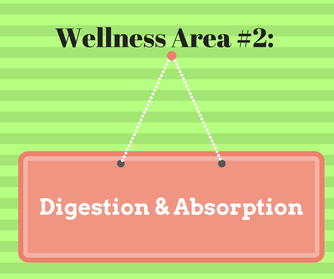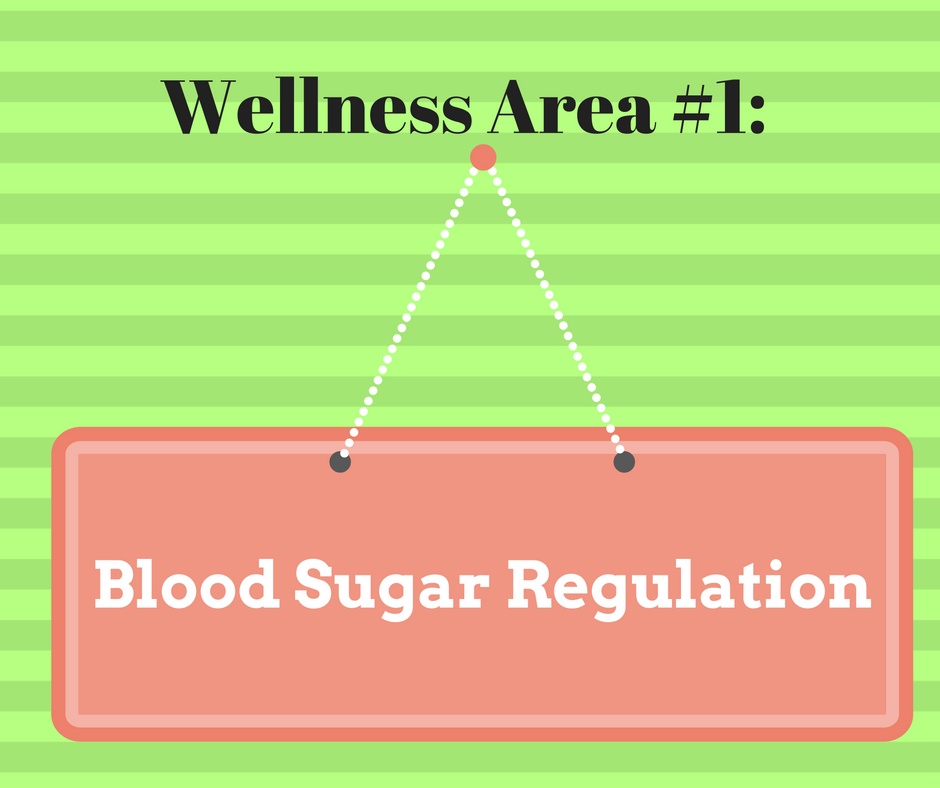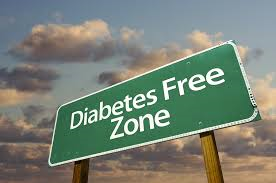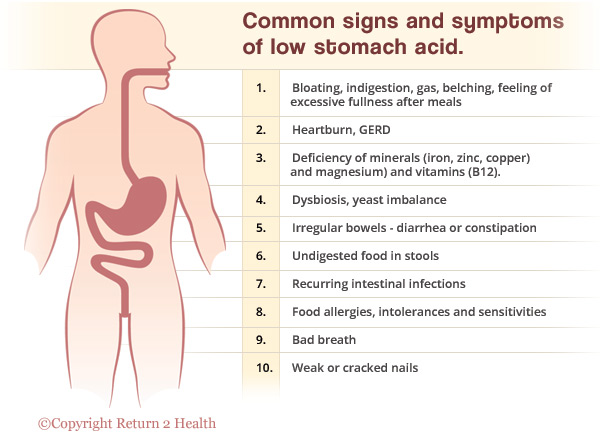15 areas of health and wellness.... #2 Continuing with the series of 15 areas of wellness that is assessed in the WICO questionnaire, today's area of health to consider is one that approximately 1/3 of US adults take into consideration daily because they have symptoms or take medication to help them with this (but really, 100% should...) DIGESTION and it's evil cousin, ABSORPTION. I would go out on a limb here and say that YOUR DIGESTION PROBABLY SUCKS. (Sorry. Keeping it real, people....) Seriously, this is so critical to health but SO many of you are doing it wrong!! If it is common for you to have days that remind you of the ol' Pepto-Bismol jingle, digestion is a weak link in your chain of health, my friend. Take my unofficial quiz for digestion: 1. Do you get heart burn or take anything for heart burn? (It's the 3rd most-common class of medications.) 2. Do you burp, or feel gassy or bloated after eating? 3. If you burp, do you re-taste your meal? (sometimes still counts...) 4. Do you still have your gallbladder? 5. Have you taken antibiotics? 6. Did you take probiotics afterward? 7. Do you chew your food about 20 times per bite? (really, take a count next time! Your bite should be like liquid when you swallow.) 8. Do you DRINK a lot of fluids DURING your meal? 9. Do you have a bowel movement EVERY day? 10. Do you lose at least 12" of stool per day? (Yes, 1 foot!) 11. Do you take anything to help you go to the bathroom? If you answered "Yes" to #1, 2, 3, 5, 8, or 11... or "No" to #4, 6, 7, 9 or 10, your digestion is probably poor. Any 1 of those on that short list (depending on how you answered) is a sign of bad digestion. If you can't DIGEST your food, you make it so much harder on your body to ABSORB nutrients from your food. You could be eating "right" and still have poor nutrition because your digestion just isn't working. To see how you would score in 15 areas of health, check out the WICO score. I also offer free 10 minute phone consultations if you would like to talk. Do you know the 15 areas of health? Wellness.... What does that mean to you? For me, there are many areas of health to address when assessing one's health condition, and some of them take a higher priority than others. Often times what brings someone to contact me is just a piece of their actual health issues. One of the tools I can use in my office is the WICO® score assessment, which is a comprehensive, 294 question survey that you can take online and it gives you a "wellness" score, sort of like you get a FICO® score for your credit. There are 15 areas that the WICO score assesses, and I wanted to take some time to go through each of these. Interested in how YOU score in these areas? You can take the WICO® assessment here. Ah, Good Ol' Glucose. The FUEL of your body.
If you are feeling fatigue, fatigue between meals, or if eating RELIEVES your fatigue, you may have problems regulating your blood sugar.... If you have trouble sleeping, don't get enough exercise, are overweight, or need to use caffeine to make it through your day...you might have problems regulating your blood sugar.... If you eat a lot of refined carbs, or not enough protein (among many, many other items too numerous to list), you guessed it, you might have problems regulating your blood sugar! Contrary to what you might believe, you do NOT need to be obese to be pre-diabetic or even full-blown diabetic. In our high-stressed, fast-food, caffeine-rich, nutrient-poor average American population, I find pre-diabetes all the time in persons who "look healthy". (By the way, ANYONE with a chronic condition will tell you that LOOKS have little to do with HEALTH.) And sometimes we find LOW blood sugar contributing to fatigue, headaches and other symptoms. TRUTH #1: this is an area often OVERLOOKED by your primary doctor. Fasting glucose, which is typically run at your annual physical, is NOT enough. When was the last time your HbA1c was assessed? If you are like 95% of my patients the answer is NEVER, (unless you are known to have diabetes). (Seriously, I find glucose problems ALL THE TIME in people who have been told they are "healthy".) TRUTH #2: If you do have glucose handling problems, this is a main priority for the body. It's how your body gets fuel.... Too little is bad, and too much is like gas on a fire. You will NOT have lasting health if you don't get this under control. Hormone balance, S-E-X functions, reproduction, etc. all take a back seat to GLUCOSE metabolism. Got it? If you want to assess your own wellness status further, I suggest that you take the WICO® assessment and get your baseline in all 15 area of health, or you can schedule a complimentary phone consultation with me. To your health, Dr. Jennifer There are now over 100 named auto-immune diseases recognized. This has grown from 88 named diseases in 2008, when I graduated from school. Auto-immune diseases tend to favor women and are the #2 cause of chronic illnesses and in the top 10 causes of death for those under age 65. They can cause symptoms all over the body, making them a challenge for conventional providers to diagnose. Let's take a look at auto-immune diseases, what they are, why some get them, and what to do about it. What is an auto-immune disease?An auto-immune disease is when your complex immune system, designed to protect you from foreign invaders (bacteria, viruses, etc.) turns against YOU. Depending on the disease, your immune cells start attacking your pancreas, your thyroid, your joints, your skin, your organs.... Your immune system thinks that some (or several) types of cells in your own body are dangerous to you, and kills them. Why do people get an auto-immune disease?iThere are many factors involved in why a person develops an auto-immune condition. There is a genetic component, but genetics alone does not mean that you will get a specific condition - you may have the gene but it never gets "turned on" or expressed. So, what can "turn on" the gene? Often it is a STRESS to the body. Your immune system gets ramped up to fight off that stress and, in the process, confuses your cells with harmful cells. What stressors? For some, it may be intense emotional stress... a divorce, a birth of a new child, a death of a close friend or family member. For some, it may be toxins - heavy metals like mercury or aluminum, mold exposures, etc. Maybe a chronic infection like Epstein Barr Virus (EBV), Candida, Herpes, Lyme disease... Over time, these stressors can cause disrupt the functions of the gut - causing "leaky gut", food intolerances - especially gluten and dairy, etc. Think about it, 80% of your immune function is in the gut, so is it any surprise that many autoimmune conditions have GI symptoms? 7 Signs You May Have an Auto-immune DiseaseIf you are experiencing a combination of any of these symptoms, you may have an auto-immune disease (list is not all-inclusive):
What to do if you think you have an autoimmune disease?The most important thing you can do if you think you have an autoimmune disease is to find and treat the underlying cause. Typically there are several factors that need addressed, but first, let's discuss the conventional route. Conventional doctors treat the SYMPTOMS, but do not look to find the root cause. Common treatments are prescribing medications such as anti-inflammatory drugs, steroids (such as prednisone), or immunosuppressants. (Yes, let's turn off your immune system...? Be wary of getting the flu or any other infections then....) You may start with your primary care provider, but will likely be sent to see one or more specialists, for conventional medicine is very segmented. If you have joint symptoms, you'll see a rheumatologist. Have hormone symptoms, you'll see an endocrinologist. (Rarely does an auto-immune disease stay in one system...) But the body is not segmented....it all plays together. The specialists are very good at analyzing you under their specific lens, but when your symptoms don't fit that picture, you get referred on (and on, and on...) Unfortunately, there is no such thing as an autoimmunologist. Well, there's something close.... What is my approach to helping those with auto-immune diseases?With my labs-supported clinical nutrition (functional medicine) approach, I look at you as a total person. What is the history behind your condition? What is your family history? What are your risk factors for being exposed to different infections, toxins, parasites, etc. Do you have food sensitivities? How do you handle stress?
The initial testing is a 52-point blood test to evaluate your current health status. I always run a mineral and toxic metal hair test as well as a urinalysis. We may do stool testing, of which there are several options depending on your case and your risk factors. We keep looking for the cause(s) of your health condition and we make a plan to reverse them.
As always, help is just a call away. Can you reverse diabetes? Is it for real?
Yes, and YES! Reversing diabetes, putting it into remission, preventing its horrible complications (neuropathy, amputation, blindness, kidney failure) is possible. But don't just believe me.... CNN said so. WebMD said so. Diabetes Today magazine said so. What about this article in the Huffington Post - it says so, too. If you're prediabetic (most don't even know they are, so bravo to you if you know where your health status is at), now is the perfect time to take control of your health - typically the earlier you start, the faster you heal. But if this out-of-control epidemic is reversible and preventable... Why hasn't your doctor told you so? When the diet and exercise advice you received from your medical team is not enough, you need a new approach. If you're a diabetic, ask yourself this:
Now, ask your doctor who prescribed you these medications "how many patients have you gotten OFF medications because their diabetes status got BETTER?" WHY did you develop diabetes? Why do you still have it? Yes, it's a metabolic disorder, specifically in how you process and manage glucose levels, but has anyone done a THOROUGH evaluation to see how your whole body is functioning, where all the problems and deficiencies are, and not focused on your glucose/A1c? Maybe you are getting some additional labs because of the side effects of your medications and the progression of your diabetes, but has anyone really analyzed your labs as a whole, and not focused on each individual part? Has anyone assessed your toxicity burden and whether your body adequately handles the environmental toxins we are all hit with on a daily basis? Not all functional medicine providers seek out toxins, but we do that! See how many cases were helped by reducing toxicity in these SBN successes. If you are worried about your diabetes and are looking for the next steps for you, we're here for you. If you have Type 1 diabetes and you think there's no help for you....think again! These same principles - getting functionally tested and addressing nutritional deficiencies - can help you, too! While you will never be completely off insulin, you can typically reduce the amount of insulin you need and prevent diabetic complications by following our program. I'm on a mission to make a dent in diabetes. Let's do this! Are you one of the MILLIONS of adults taking stomach acid medications? With over $6 Billion in sales on antacids, you're not alone. Started them because you felt a little heartburn after you ate? What if I told you that your heartburn was most likely from LOW stomach acid? Say What? It's true. As we get older, our ability to produce most secretions, including stomach acid goes DOWN, not up. (Thanks, physiology classes!) Maybe some of you do have true GERD or reflux.... from a faulty valve (LES) at the top of your stomach. Some of you may be overweight, which pushes up on your stomach (and pushes your trying-to-be-digested food upward). Pregnancy can do this temporarily, as well. Some may have a hiatal hernia (where the top of the stomach pokes up through the diaphragm muscle, where it doesn't belong). Wait, where was "too much stomach acid" on that list??... You're probably wondering "how can I get heartburn from LOW acid?" I'm glad you asked. You need stomach acid to activate your protein-digesting enzymes (pepsin) in the stomach - this breaks protein down into useable amino acids. The low pH produced by stomach acid also inhibits bacterial growth in the stomach and creates the signal to release your food from the stomach (now called chyme) into the small intestine for further digestion. It takes LONGER for you to process a protein-rich meal when you have low acid. Your stomach will dump as much as is (mostly) ready into the small intestine, leaving undigested food to ferment (causing gas) in the stomach. You eventually release MORE acid to try to finish this digestion, making it seem like you have too much stomach acid, when really if you had enough, you wouldn't need a round 2 of acid to finish your meal. The gas from the fermenting food can cause the LES (lower esophageal sphincter) to open up to relieve the pressure. Hence your heartburn sensation. ***If you burp and taste your dinner, you didn't properly digest it! Check out this list of signs and symptoms of LOW stomach acid. How many do YOU have now or are being treated for? Bloating, gas, indigestion, burping... Heartburn, reflux.... vitamin and mineral deficiencies.... yeast infections (candida), dysbiosis, IRREGULAR BOWELS.... Food sensitivities, allergies, or intolerances.... Bad breath (halitosis), weak nails.....
As well as others not on the above picture: FATIGUE, ADRENAL (cortisol) imbalances.... GLUCOSE imbalances... The repercussions of LOW stomach acid are numerous and go way beyond your digestive system. In the human body, you never affect one organ system without affecting other(s). Functional medicine providers remember that. That's why it's so crucial to evaluate your entire functioning, while ensuring proper foundational function. (Like good acid levels for digestion, preventing this cascade of consequences.) NOW for a very important word of CAUTION. If you are on prescribed antacids, DO NOT go off of them without supervision. Why? The "rebound" phenomenon is powerful. Meaning, you will produce excess acid for a few weeks after reducing/eliminating your dosage, making you feel worse initially. It will pass. Find a doctor that will help you. Side effects of long term use of antacids include: headaches, diarrhea, lowered immune function (making one more prone to problems such as pneumonia and nasty Clostridium difficile (C. diff) infections); the mineral deficiencies lead to: osteoporosis, fractures, muscle spasms, irregular heartbeats, seizures.... ----------------------- When Dr. Welch was expecting baby #2, she experienced heartburn for much of her pregnancy. She DID NOT use antacids (and her OB even told her not to because of the rebound effect - some do remember physiology!!) She used natural methods (especially gravity), such as sleeping at a slight elevation at night, to keep stomach fluids down where they belong. |
|
CONTACT US TODAY
8450 Hickman Road, Suite 16 Clive, Iowa 50325 515-897-7900 OFFICE HOURS Dr. Welch - BY APPOINTMENT Monday to Thursday |
SERVICES WE OFFER
Advanced Functional Health Alternative Medicine Holistic Medicine Science Based Nutrition Neurological Rehabilitation Diagnostic Testing Comprehensive Lab Analysis Clinical Nutrition Food Sensitivity Testing DUTCH hormone testing LLLT (Low level light therapy) Brain Gauge Assessments Heart Rate Variability Assessments |
WE CAN HELP
Unresolved Stress Diabetes Thyroid Problems Autoimmune Conditions Hormone Imbalances Depression Memory Problems Migraines Chronic Fatigue Peripheral Neuropathy Multiple Sclerosis |
PAYMENTS WE ACCEPT
Major Credit Cards, HSA and FSA. Financing programs through Coach Funding are available, OAC. Copyright Iowa Functional Health, LLC. All Rights Reserved Iowa Functional Health is an alternative health provider in Des Moines, Iowa. PRIVACY POLICY DISCLAIMERS The information on this website has not been evaluated by the FDA and is not intended to treat, cure, or prevent any disease. |





